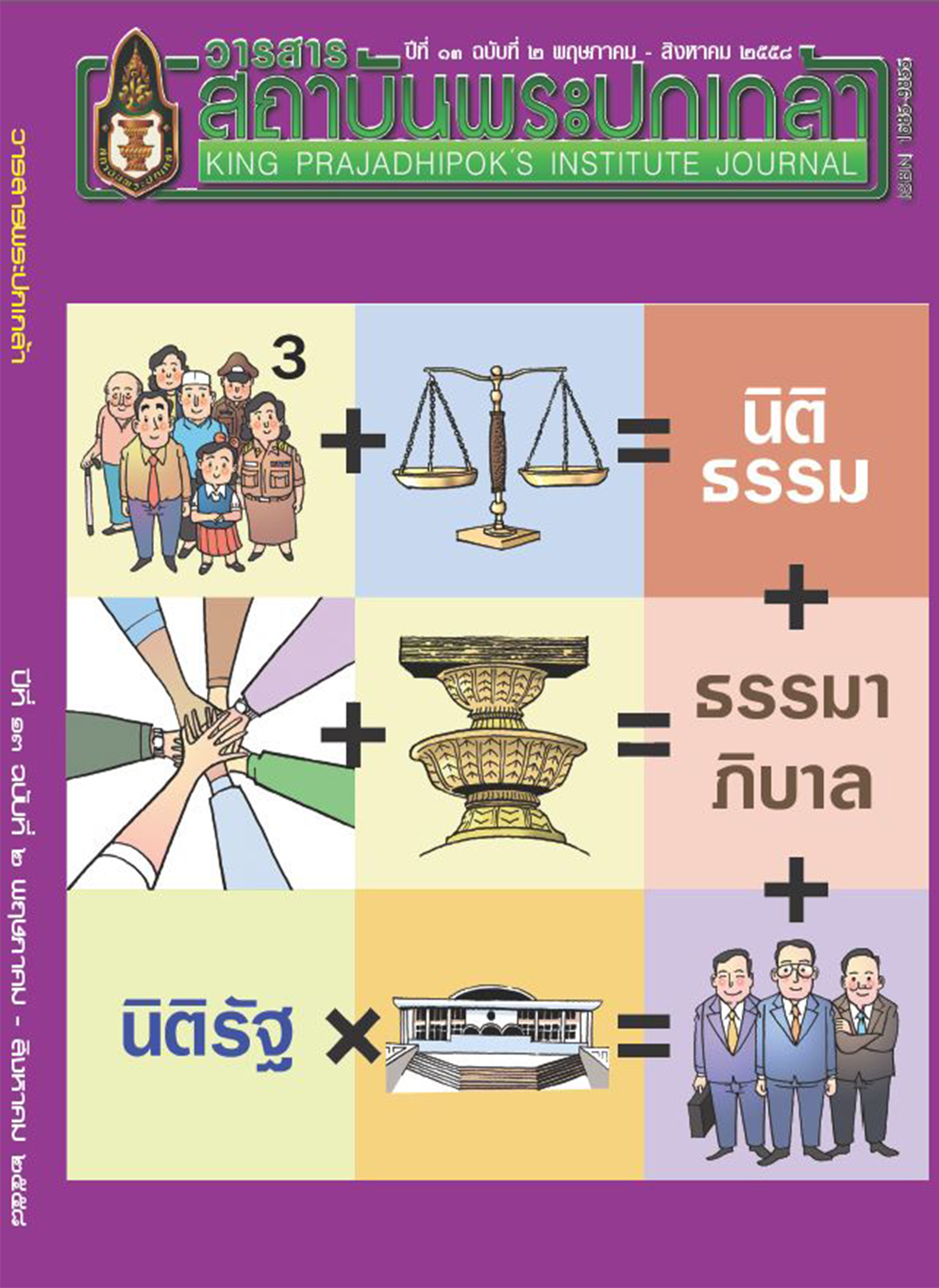Political Participation Behavior and Democracy Level of Bangkok Citizens
Main Article Content
Abstract
Study of political participation among citizens is imperative for democratic development. This research aims to inquire regarding political participation of Bangkok citizens. In this regard, this study presents many interesting findings. Level and pattern of political participation can differentiate levels of democracy in different aspects of Bangkok civilian. Specifically, Bangkok citizenscivilian who participates in politics only
via media and never directly participates directly in real politics have significantly has lower level of democracy than ones who directly participates directly. significantly.
Moreover, when focusing on three aspects of direct political participation;(1) participating in political campaigns, (2) participating in political protests, and (3) participating in general elections by voting, the first and the third aspects can differentiate participating citizens them those who have never had direct experience in direct political participation. However, the second aspect, citizens’ participation in political protest, in unrelated to a citizen’s level of democracy compared to that of a citizen who has never had direct experience in direct political participation.
Article Details
@ 2020 King Prajadhipok's Institute The Government Complex Commemorating All Right Reserved.
References
ธานินทร์ กรัยวิเชียร. ๒๕๒๐. ระบอบประชาธิปไตย. กรุงเทพฯ: โรงพิมพ์คุรุสภา.
สำนักงานเลขาธิการสภาผู้แทนราษฎร. รวมรัฐธรรมนูญไทย. สืบค้นเมื่อวันที่ 1 มีนาคม 2557 จาก http://www.parliament.go.th
สำนักเลขาธิการคณะรัฐมนตรี. ประวัตินายกรัฐมนตรี. สืบค้นเมื่อวันที่ 1 มีนาคม 2557 จาก http://www.cabinet.thaigov.go.th/bb2_main21.htm
Arat, Z. F. 1991. Democracy and human rights in developing countries. Boulder, CO: Lynne Rienner.
Birch, A. H. 2007. The Concepts and theories of modern democracy. Milton Park, Abingdon, Oxon ; New York : Routledge.
Bryce, L. 1921. Modern Democracies, vol. 1. New York: Macmillan.
Center for Systemic Peace (CSP). 2010. CSP Coup sList 2010. Retrieved March 1, 2014 from http://www.systemicpeace.org/inscr/CSPCoupsList2010.xls
Dahl, R. A. 1971. Polyarchy : participation and opposition. New Haven: Yale University Press.
Diamond, L., Linz, J.J., & Lipset, S.M. 1989. Democracy in Developing Countries. Boulder, CO: Lynne Rienner.
Economist Intelligence Unit (EIU). 2012. Democracy index 2012: Democracy at a standstill. Retrieved March 1, 2014 from https://www.eiu.com
Holden, B. 1993. Understanding Liberal Democracy. New York: Harvester Wheatsheaf.
MacPherson, C. B. 1977. The life and times of liberal democracy. Oxford, UK: Oxford University Press.
Munck, G. 2009. Measuring democracy. Baltimore, MD: Johns Hopkins University Press.
Robbins, M. D. H. & Tessler, M. 2012. The Effect of Elections on Public Opinion Toward Democracy: Evidence From Longitudinal Survey Research in Algeria.
Comparative Political Studies, 45 (10), 1255–1276.
Sartori, G. 1987. The Theory of Democracy Revisited. Chatham, NJ: Chatham House.
Schumpeter, J. 1947. Capitalism, Socialism and Democracy. New York: Harper and Brothers.
TELL. 2006. Ballots, Bullets and the God Fathers. TELL.
Sorensen, G. 1993. Democracy and Democratization. Boulder CO: Westview Press.


